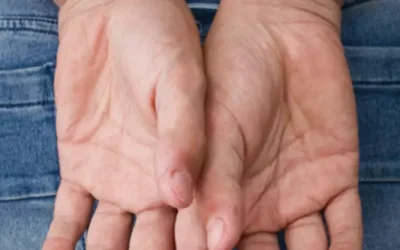5 Simple Ways to Practice Gratitude in Recovery FHE Health
Content
Keeping a gratitude journal can be an excellent practice for those in addiction recovery, as it allows them to reflect on their progress and acknowledge the support they’ve received along the way. By focusing on the positive aspects of their lives, individuals in recovery can begin to reframe their mindset and build resilience. In the often-turbulent journey of addiction recovery, feelings of gratitude can play an important role in helping you feel secure and connected. On the one hand, gratitude arises from within, helping you focus on and appreciate your own experiences instead of projecting those experiences outwards onto others.
Gratitude is one of the most powerful things that you can include in your recovery. But in several other ways, it requires you to actively put in the effort. At the beginning of your addiction treatment, you may not be thinking of much else outside of how you feel physically. Can gratitude serve as a useful tool or strategy for people in early recovery? The answer is “yes,” according to Director of Sober Skills Art Jacob and his colleague Michael Peerbolte, who facilitates 12-step groups in the program.
Substance Use Treatment
Every day, take just a moment or two to write down a few things that make you grateful. It could be spending an afternoon with a friend or watching the sunrise. Then, if you’re having an why is gratitude important in recovery especially difficult day, read over some of the things that have filled you with gratitude. It’s an internal quality — the ability to feel appreciation for a life free from addiction.
The following reasons to practice gratitude are just some of the many ways that practicing gratitude can help you in your recovery. You can set a reminder on your phone or choose a specific time of the day to practice gratitude. By being grateful for what we have in life, we can transform our outlook and attitude and enhance our recovery journey. Gratitude is also a mindset that involves noticing and appreciating the positive aspects of our lives, such as our health, friends, achievements, and even our problems. It is not just a verbal expression but a mental attitude that can be cultivated and practiced daily.
Gratitude Helps Recovery
When treatment is completed, practicing gratitude can help you maintain your recovery. You can find positive role models in your recovery community, such as support groups, online forums, or recovery coaches. You can also seek out people in other areas of your life, such as hobby groups, volunteer groups, or spirituality groups. Try to avoid or limit contact with people who are negative, critical, or toxic. Gratitude is often misunderstood as complacency or settling for less.
Even during challenging times, practicing gratitude can help us find hope and perspective. It can be hard to feel grateful every day, especially as you’re going through all the ups and downs of recovery. You need to be realistic in recognizing that sometimes you’ll have bad days. It might be a little harder to find the thing to be grateful for on those days, but you can find it. Practicing gratitude is one of the most popular early recovery topics.
Gratitude Keeps Resentment in Check and Measures Our Spiritual Welfare
Choosing to stop using addictive substances and actively work toward recovery is a positive step. But it can be derailed quickly by those hopeless, negative thoughts, and the actions that go with them. Trapped in that mindset, an addicted person might think that there’s no point in trying to recover, because they’ll always use again.
- While this is one way of showing gratitude, it is not the only way.
- Writing down what you feel thankful for helps you notice and remember the good things in your life and creates a record that you can look back on when you need a boost of positivity.
- And while it may not come easily at first, just like negative thinking is a habit for some, being grateful can become a habit too.
- As a core principle of many recovery programs, the word gratitude gets thrown around a lot.
One way is to begin journaling about the things in your life that you are grateful for right now. While we can look at each one of these things and find an issue, the power is in finding the good in each. However, if you are able to take that negative event and laugh it off or just forget about it, the day often turns around and is a good one.
Explaining Outpatient Therapy for Mental Health: Advantages and Options
Gratitude is not a magic bullet that will cure your addiction overnight. It takes practice and commitment to cultivate a grateful mindset and attitude. But if you do, you will see the benefits in your recovery and in your overall well-being. Gratitude can help you overcome addiction by making you happier, healthier, and more connected. Gratitude is an emotion that carries immense power, capable of transforming individuals’ mental and emotional health.

The good news is that gratitude is contagious, and you can practice gratitude with others to help teach yourself to find positivity naturally. For those in recovery, maintaining gratitude can help reduce risk of relapse, promote a positive mindset, and act as an important tool in managing difficult emotions or situations. Gratitude is an essential part of any sustainable recovery lifestyle; it’s https://ecosoberhouse.com/ a muscle that can be flexed until a positive outlook becomes second nature to us. We become happier, kinder, more present and contented people in the long run. Whether you want to learn gratitude in the big book or practice it through exercises, it can only enhance your life. Scientific research [2] has proven that gratitude actually improves our physical, mental, and emotional well-being.